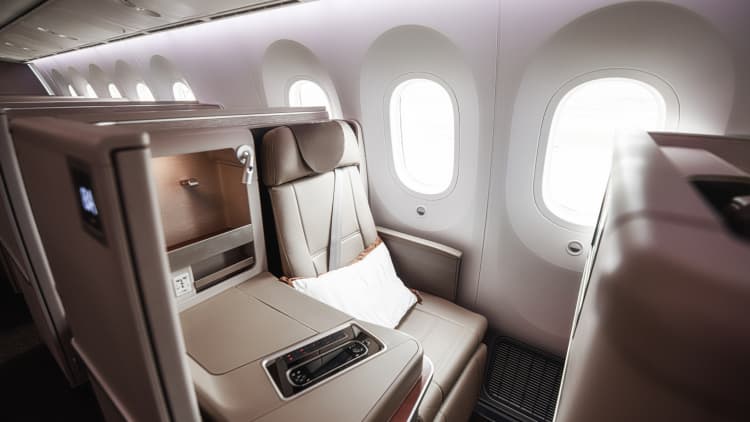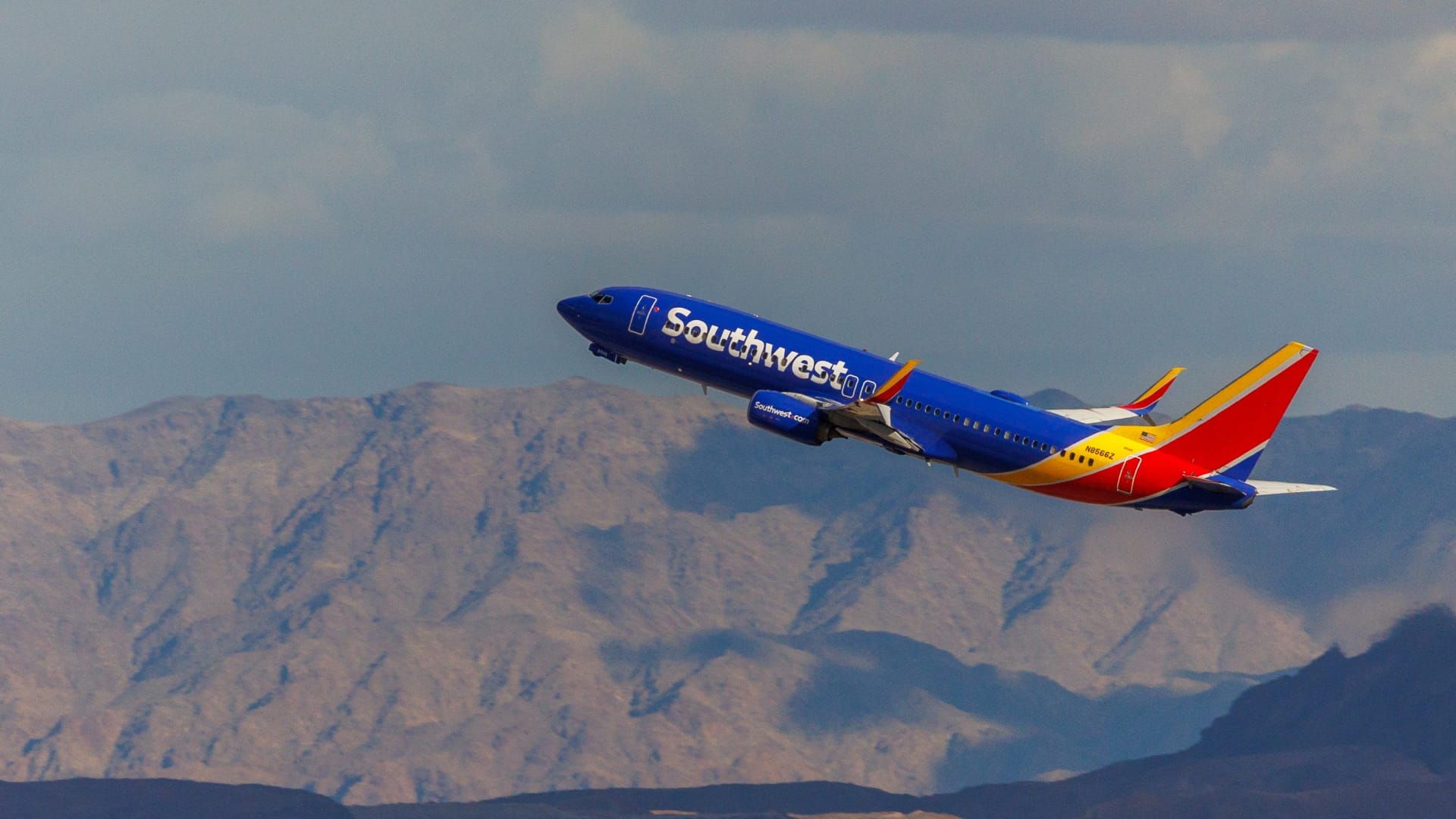A Southwest commercial jet takes off from Las Vegas on February 8, 2024.
Mike Blake | Reuters
Southwest Airlines is ending open-back seating and will offer seats with extra legroom on its planes as mounting pressure on the airline to boost revenue drives the biggest changes to its business model in its 53 years of flying.
The airline plans to start selling the first flights that will offer extra legroom next year, it said Thursday. It also plans to start operating night flights from February.
Southwest executives have said for years that they were studying such changes, and in April hinted that the airline was seriously considering assigned seating and offering extra legroom options. Currently, the airline places customers in one of three boarding groups and assigns them a number, triggering a mad dash to check in the day before the flight. Customers can board earlier, though paying a higher ticket will get them a better boarding time.
When travelers choose a competitor over Southwest, the airline found in its research that its open seating model was the No. 1 reason for that choice, the airline said in a statement outlining the changes. It also said 80% of its own customers prefer assigned seating.
“While our unique open-seating model has been a part of Southwest Airlines since our inception, our thorough and exhaustive research makes it clear that this is the right choice, at the right time, for our customers, our people and our shareholders,” CEO Bob Jordan said in a news release Thursday.
Jordan added during the company's second-quarter earnings conference call that the decision was due to a shift in broader customer travel preferences and patterns, and Southwest's desire to increase its market share among corporate business travelers.
“Today, customers are taking fewer short-haul trips. They're flying longer, and when they're flying longer, the importance of an assigned seat increases,” Jordan said. “Premium product growth has outpaced main cabin revenue growth for some time, and elsewhere in the economy, consumers are simply cutting back on non-essential retail purchases and spending that money on experiences.”
However, Southwest has no intention of changing its beloved two-bag-free policy. After fares and schedules, the airline's “bags fly free” policy is the top reason customers choose Southwest over its competitors, Jordan said on the call.
The airline is now under even more pressure to segment its product like other airlines after activist investor Elliott Investment Management disclosed a nearly $2 billion stake in Southwest in June and called for new leadership as the airline underperformed its competitors.
Southwest reported second-quarter earnings on Thursday, which showed a 46% drop in profit.
Southwest has been working on the seating changes for nearly a year, and Jordan told CNBC's “Squawk on the Street” on Thursday that it was not related to Elliott's push for leadership and policy changes.
Elliott has called for Jordan and Southwest President Gary Kelly, both with more than three decades of experience at Southwest, to be replaced.
Jordan dismissed those calls Thursday, saying Elliott “has not shown a willingness to engage in any meaningful conversations.”
“We would be happy to do that, but it's difficult to have a one-sided dialogue,” he told CNBC in the interview.
Elliott did not immediately respond to a request for comment.
Southwest said it expects about a third of the seats on its Boeing 737s to offer “more legroom, in line with what industry peers offer on narrow-body aircraft.” The Federal Aviation Administration would have to approve the cabin designs, the airline added.
Southwest executives did not specify how much revenue they expect seat assignments or more expensive legroom seats to generate, but said they project it will be “substantially in excess” of the $1 billion annually generated by the airline’s current ancillary products such as Early Bird boarding.
Jordan said the airline expects “very little” incremental capital expenditure because the change requires retrofitting the cabin rather than buying a new one.
Executives said the price point between standard economy class and seats with extra legroom won't be very high.
The Dallas-based airline prided itself on having made steady profits for most of its more than five decades of flying thanks to its simple business model. Jordan said last month that unassigned seating was easier to offer when planes weren't as full.
Analysts criticized Southwest for moving too slowly. Rival airlines offer a number of options to upsell customers, such as seats with extra legroom, premium economy or business class. However, other airlines such as Delta, United and AmericanFour years ago, the airline followed Southwest's lead and eliminated change fees for most tickets.
Southwest will provide more details about the upcoming changes at an investor day in late September.










